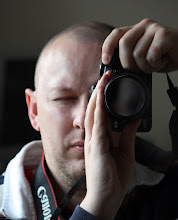Hi all,
Ive decided to stop this blog and just post everything on my other one.
Please click here to view.
Thanks
Thursday, 23 July 2009
Sunday, 31 May 2009
Kimmeridge Bay
Went out to Kimmeridge Bay this evening, was quite lovely there. We sat on a rock with our feet in the water watching the calm ripples come in.
Some of the better shots from the last few days
With the garden in full swing now, and our 7 roses and 3 clematis starting to run at full steam, its hardly surprising I cant put the camera down!!
Sunday, 24 May 2009
some new flower shots
Everything is coming into bloom now in the garden.. we have 7 roses, 1 of which is now really showy. And the clematis are just magnificent. Heres a few shots I took this morning.
Sunday, 10 May 2009
Friday, 8 May 2009
macro close up filters
Got some new close up filters today.. only £20 for 4 different optics. All they do is reduce the minimum focal distance of a lens, enabling you to go much much closer than you'd normally manage. Seeing as a good macro lens is hundreds, its worth a shot.
Wednesday, 6 May 2009
depth of field
Depth of field is literally the range in the image that is in focus, its useful for showing off the focal point of the image that you intended.

In this image, the nib is in focus, but the foreground and the background isn't (you can see by the lines).. this is a very shallow depth of field, forcing the viewer to focus on what you wanted :) taken at an aperture of f2.8.
The smaller the aperture the shallower, or shorter, the depth of field. If you were taking a picture of a landscape, you might choose a deep depth of field in order to get everything in focus, as its the entire vista you intend the viewer to see.

In pet portraits its very useful to pick the depth of field so that the head is in focus, but maybe the body isnt. In this shot of Kiska I have focus fading out at the neck, so that her eyes and facial markings look more striking :).
It takes quite a bit of practice to get used to it! On modern dSLR's you often have a 'depth of field preview' button so that you can see live how the image will look, enabling you to fine tune it to your requirements.
There is a trade off however, the smaller the aperture (the opening in the lens), the less light enters the lens and hits the film/CMOS sensor, so you might find yourself in situations where you want a shallow depth of field, but do not have the light for it! this is when we refer to a 'fast' lens, a lens that has a very low aperture ability which gives you more flexibility in your shot selections.. the smaller the minimum aperture, the more expensive the lens gets! especially at long focal lengths.
In this image, the nib is in focus, but the foreground and the background isn't (you can see by the lines).. this is a very shallow depth of field, forcing the viewer to focus on what you wanted :) taken at an aperture of f2.8.
The smaller the aperture the shallower, or shorter, the depth of field. If you were taking a picture of a landscape, you might choose a deep depth of field in order to get everything in focus, as its the entire vista you intend the viewer to see.
In pet portraits its very useful to pick the depth of field so that the head is in focus, but maybe the body isnt. In this shot of Kiska I have focus fading out at the neck, so that her eyes and facial markings look more striking :).
It takes quite a bit of practice to get used to it! On modern dSLR's you often have a 'depth of field preview' button so that you can see live how the image will look, enabling you to fine tune it to your requirements.
There is a trade off however, the smaller the aperture (the opening in the lens), the less light enters the lens and hits the film/CMOS sensor, so you might find yourself in situations where you want a shallow depth of field, but do not have the light for it! this is when we refer to a 'fast' lens, a lens that has a very low aperture ability which gives you more flexibility in your shot selections.. the smaller the minimum aperture, the more expensive the lens gets! especially at long focal lengths.
Subscribe to:
Comments (Atom)

